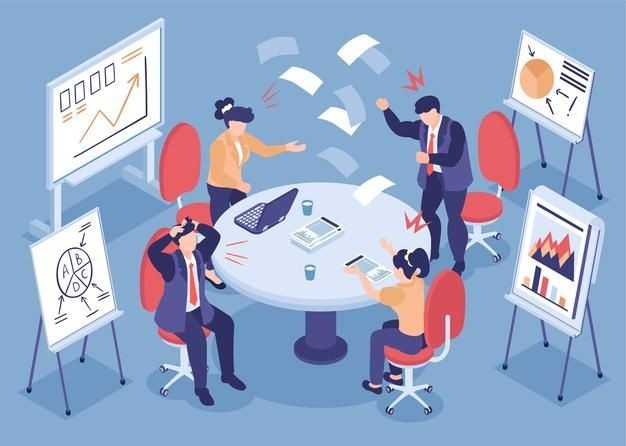Warning: Undefined array key "HTTP_REFERER" in /www/domains/textandtext.com/view/web/text.php on line 17
How to Learn Conflict Resolution Skills: A Simple Guide


Conflict is a part of life—whether it's at work, home, or in social situations. But learning how to resolve conflicts effectively can make a huge difference in your relationships and overall well-being. In this article, we’ll break down the steps you can take to master conflict resolution skills in a way that’s easy to understand and apply. Let’s dive in!
▎What is Conflict Resolution?
Before we get into the how-to, let’s clarify what we mean by conflict resolution. Simply put, it’s the process of resolving a disagreement or dispute between two or more parties. This could involve negotiating, compromising, or finding a solution that satisfies everyone involved. Effective conflict resolution leads to healthier relationships and a more positive environment.
▎Why Are Conflict Resolution Skills Important?
1. Improved Relationships: When you know how to handle conflicts, you can maintain stronger relationships with friends, family, and colleagues.
2. Better Communication: Learning to resolve conflicts helps you express your thoughts and feelings more clearly.
3. Emotional Intelligence: It enhances your ability to understand and manage your emotions as well as those of others.
4. Stress Reduction: Handling conflicts effectively can reduce stress and anxiety, making you feel more at peace.
▎Steps to Learn Conflict Resolution Skills
▎1. Understand Your Conflict Style
Everyone has a unique way of dealing with conflicts. Some people avoid confrontation, while others might be more aggressive. Take some time to reflect on your own style. Do you:
• Avoid conflicts altogether?
• Compromise too quickly?
• Get defensive?
Understanding your default approach will help you recognize areas for improvement.
▎2. Practice Active Listening
One of the most crucial skills in conflict resolution is active listening. This means fully concentrating on what the other person is saying without interrupting. Here’s how to practice:
• Give Your Full Attention: Put away distractions like your phone or computer.
• Show Empathy: Nod or use verbal affirmations like “I see” or “I understand.”
• Summarize What You Hear: Repeat back what the other person said to ensure you understood them correctly.
▎3. Stay Calm and Composed
When conflicts arise, emotions can run high. It’s essential to stay calm. Here are some tips:
• Take Deep Breaths: If you feel yourself getting worked up, take a few deep breaths to center yourself.
• Pause Before Responding: Give yourself a moment to think before you reply, which can help prevent saying something you might regret later.
• Use “I” Statements: Instead of saying “You always…” try “I feel…” This reduces defensiveness and encourages open dialogue.
▎4. Find Common Ground
Look for areas where both parties agree. This can help build a foundation for resolving the conflict. Ask questions like:
• What do we both want?
• Where do our interests align?
• How can we both benefit from a solution?
▎5. Brainstorm Solutions Together
Once you’ve identified common ground, work together to find solutions. Encourage open discussion about possible options without judgment. Here’s how:
• Be Open-Minded: Consider all ideas without dismissing them right away.
• Evaluate Options Together: Discuss the pros and cons of each solution.
• Agree on a Solution: Choose the best option that works for everyone involved.
▎6. Follow Up
After reaching a resolution, it’s essential to follow up to ensure that everyone is satisfied with the outcome. Check in with the other party after some time has passed:
• Ask how they feel about the resolution.
• Discuss any lingering issues or concerns.
• Reinforce your commitment to maintaining a positive relationship.
▎Resources for Further Learning
If you're serious about improving your conflict resolution skills, consider exploring these resources:
• Books: Look for titles like "Crucial Conversations" or “Nonviolent Communication.”
• Workshops: Many organizations offer workshops on communication and conflict resolution.
• Online Courses: Websites like Coursera and Udemy have courses dedicated to conflict resolution.
▎Conclusion
Learning conflict resolution skills is an ongoing journey that can greatly enhance your personal and professional life. By understanding your conflict style, practicing active listening, staying calm, finding common ground, brainstorming solutions together, and following up, you can become a pro at resolving conflicts effectively.
Remember, every conflict is an opportunity for growth—both for yourself and your relationships. So take these tips to heart and start practicing today!







